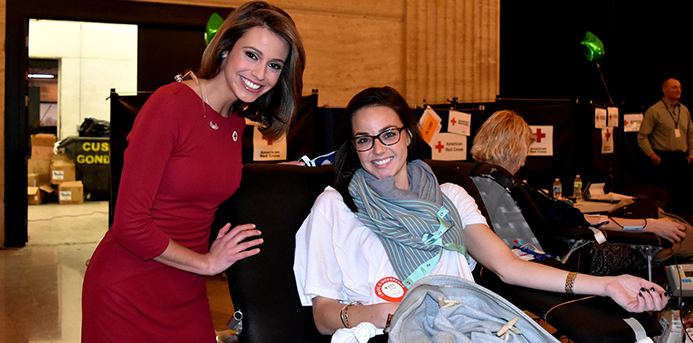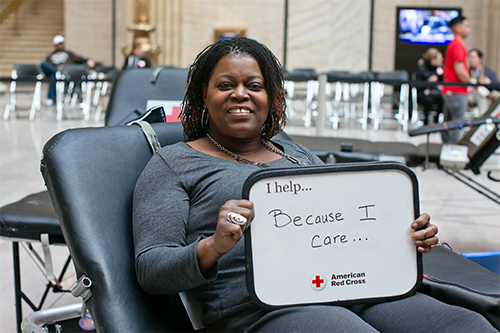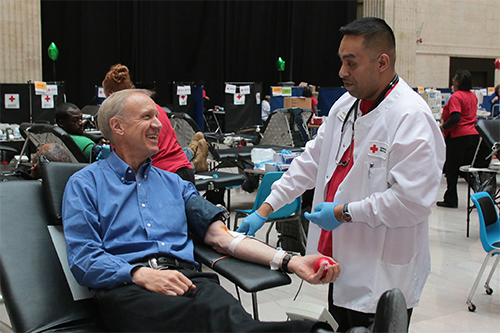The Red Cross has a critical need for blood donations this January. Holiday plans, inclement weather and seasonal illnesses can keep eligible donors from giving, creating a greater need for donations during the winter.
“Someone needs blood every two seconds in the U.S.,” says Celena Roldan, chief executive officer of the Chicago & Northern Illinois Red Cross. “Blood donations of all types are critically needed in the coming days so patients can continue to receive the treatment they need.”
Donated blood may be used to help accident victims, surgery patients, organ transplant patients, and those receiving treatment for leukemia, cancer or sickle cell disease. Karen Fielder, who was diagnosed with leukemia, went through 48 donors to make sure she had all the blood she needed during treatments.
There is no substitute for donated blood products. Each day, the Red Cross needs 14,000 blood donations to meet the needs of patients at approximately 2,600 hospitals and transfusion centers across the country.
“While all blood types are needed, those with types O, A negative and B negative blood are encouraged to make a Power Red donation at this blood drive,” says Raul Mora, manufacturing director with the Red Cross. “Power Red donors give a concentrated dose of red blood cells during a single donation, allowing them to maximize their impact.”
How to Donate Blood
Simply download the American Red Cross Blood Donor App, visit redcrossblood.org, or call 1-800-RED CROSS (1-800-733-2767) to make an appointment at any blood drive near you.
All blood types are needed to ensure a reliable supply for patients. A blood donor card or driver’s license or two other forms of identification are required at check-in. Individuals who are 17 years of age (16 with parental consent in some states), weigh at least 110 pounds and are in generally good health may be eligible to donate blood. High school students and other donors 18 years of age and younger also have to meet certain height and weight requirements.
Blood donors can now save time at their next donation by using RapidPass to complete their pre-donation reading and health history questionnaire online, on the day of their donation, prior to arriving at the blood drive. To get started and learn more, visit redcrossblood.org/RapidPass and follow the instructions on the site.



